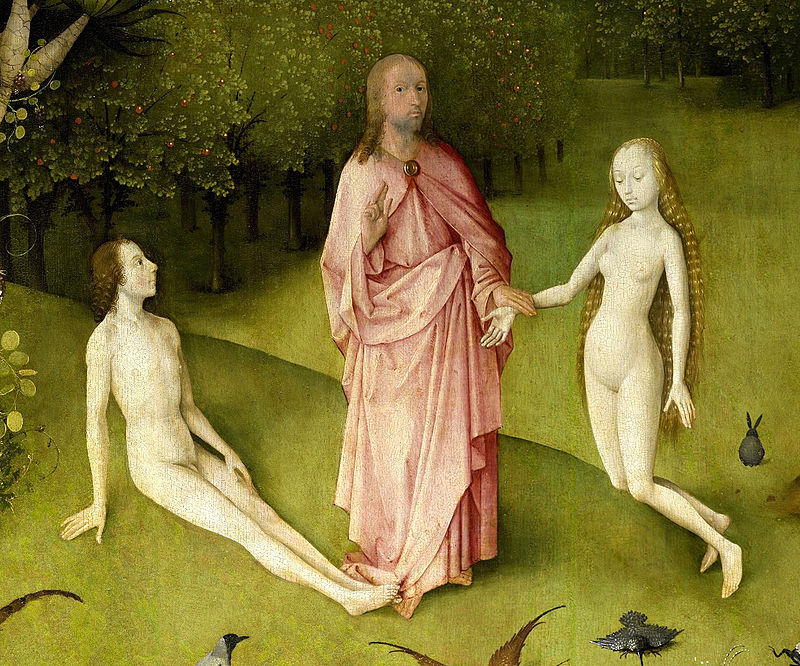Did you hear the Church of England is going to ordain women bishops?
This is something the Catholic Church will not and indeed cannot do.
This is not the place for an examination of the many, many theological and canonical reasons that the Church has found in support of the male-only character of the priesthood.
Right now, I want to focus on one tiny subset of the whole tapestry, which is the fact that Jesus only appointed males to the apostleship. This argument is frequently used (including by me) in support for the male only priesthood and apostleship.
Former First Things editor Damon Linker has called it “extremely weak.” One person on Twitter surmised that the appointment of men to the apostleship could just be a coincidence (?!?!).
And on the surface, it can seem kind of silly: Jesus did lots of things, we can’t always know for sure what he meant by them, and so on and so forth. And how is “We’ve always done it this way” a decisive argument?
Here’s the thing: if you view it as, in and of itself, significant what Jesus did and signified, you are implicitly taking for granted one of the core claims of Christianity (if not the one on which all other claims depend), which is that it is a revealed religion.
According to Christianity, Christianity was revealed to men by God (in the Incarnation of his son Jesus Christ). According to Christianity, therefore, what is true, and what is in accordance to God’s will, is not, or not fundamentally, something which Christians figure out by abstract logical reasoning, but instead something that has been handed on down by God.
This is why Scripture describes the faith as “handed down once and for all” (Jude 1:3) and enjoins Christians to “hold fast to the Tradition” (2 Thess 2:15) of the Church, and this is why the Church describes herself as being the guardian of a “deposit” of the Faith.
It is crucial to understand this point (indeed, many Christians do not): small-t traditionalism, refusing to change for the sake of refusing to change, is valueless, yes, but Christianity believes itself to be a religion teaching truths revealed to men by God.
If you understand Christianity to be a revealed religion, then what Jesus did or didn’t do, even by itself, takes critical import, because we understand it to be part of a divine Revelation that is bequeathed from God to men for safekeeping.
This means that if Jesus Christ, who is God and the Word of God (Jn 1:1), taught something, whether in word or deed, certainly in the cases where the Church has always understood this teaching as being a teaching, as is clearly the case for the male priesthood, we have to understand it as binding even if we do not understand why. (And certainly the Bible is clear about the duty of following God even when we do not understand.) To reason otherwise is, in a subtle but real sense, to reduce Christianity to a man-made thing; to say “If we do not understand why it might be true, it cannot be true” is to implicitly deny that Christianity is or can be a revealed religion, coming down to us from a transcendent God who, by definition, knows better than we do. (I am not saying that all arguments for women in the priesthood do this, only this specific version of this specific argument.)
To be clear, this does not mean that Christians may not exercise critical thinking and may not theologize. But one reason why Christians sometimes describe theology as a “science” is precisely because theology takes itself to be an investigation into Divine Revelation which is taken as a given, a dataset to be investigated and understood, not a theory to be made up as we go along. It is Epistemology 101 to say that the great temptation of the scientist is to junk the empirical findings that don’t fit into her theory rather than the other way around.
In Augustine’s beautiful phrase, the Faith, at least in the Catholic understanding, is a “Beauty ever ancient and ever new”, which means that even though the truths of the faith are eternal, our understanding of them is never frozen in time. Indeed, as Bonaventure, whose feast day is today, decisively asserted, the Church grows and progresses in her understanding of Divine Revelation, which is why there is indeed development of doctrine, but this development can never contradict the revealed truths of faith.
Women in the priesthood is a good example: although this was never the doctrine of the Church, some Church Fathers have asserted that the reason why the Church cannot ordain women is because women are inferior (even as others asserted the equality of men and women); this view was decisively repudiated by the same Pope who infallibly declared that the Church does not have the authority to ordain women to the priesthood. We are always seeking to understand divine Revelation, but we will never do so if we deny that Revelation is, well, revealed.
The Orthodox are better at this than us, sometimes. Because of our Latin mindset, Catholicism always wants to find systematic answers, and always wants to have clear-cut reasons for everything. Again, this is good. But this can sometimes obscure the crucial distinction between the deposit of the faith and our understanding of it. In an interview (can’t find it right now), Met. Kallistos Ware, when asked about women in the priesthood, is quite candid about saying (I am paraphrasing) “We don’t really understand why we don’t ordain women, but that doesn’t mean we should”. Catholics always advance manifold reasons for their doctrines, and again, this is good, because God wants us to explore the deposit of the faith and try to understand it, even though we never will fully, but we should never lose sight of the fact that faith is a “given”.
Again, here I am not indicting all arguments against the Church’s traditional understanding of the priesthood. But I do want to stress this point about the revealed nature of Christianity, because I see a misunderstanding of it that leads people down dark paths.
“Der Garten der Lüste – Christus, Adam und Eva” by Hieronymus Bosch (circa 1450–1516) – This file has been extracted from another image: File:The Garden of Earthly Delights by Bosch High Resolution 2.jpg.. Licensed under Public domain via Wikimedia Commons.













